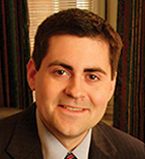By Bob Allen
Southern Baptists’ new spokesman for moral and religious-liberty concerns offered a corrective for Christian involvement in politics in a wide-ranging, 45-minute interview July 8 on C-SPAN.
“I think there was a day when evangelical Christians in America became too triumphalistic,” Southern Baptist Convention official Russell Moore said. “[They] had a Christian definition of a balanced-budget amendment or a Christian position on a line-item veto or a Christian position on foreign aid in ways that there is no clear biblical authority for that.”
 Observers expect Moore, previously a professor, dean and vice president at Southern Baptist Theological Seminary in Louisville, Ky., to bring a contrasting style to that of his predecessor Richard Land.
Observers expect Moore, previously a professor, dean and vice president at Southern Baptist Theological Seminary in Louisville, Ky., to bring a contrasting style to that of his predecessor Richard Land.
Land, who retired after 25 years in office, never formally endorsed a presidential candidate until Republican Mitt Romney in 2012, yet he was frequently quoted as a mover and a shaker among the Religious Right.
Moore, who began work June 1 as president of the SBC Ethics and Religious Liberty Commission, declined to speculate about an upcoming political horse race for the 2016 Republican nomination for president.
Washington Journal host John McArdle asked Moore to comment on a headline from the previous day’s Washington Times: “Will 2016 GOP nominee be a fresh upstart or a 2012 redux candidate?”
“I’m not sure,” Moore replied. “I’m not really interested in the political jockeying. I don’t endorse candidates; don’t support candidates. I just am praying and hoping for a good and robust debate of just people on both sides of the party equation in 2016.”
Moore disagreed with a caller’s suggestion that it would be preferable for churches to pay taxes in exchange for greater involvement in the political sphere. Current law permits 501(c)(3) tax-exempt charities to advocate on moral issues but not to endorse or oppose candidates for office.
Former Arkansas Gov. Mike Huckabee said last month at the SBC Pastors Conference in Houston that it may be time for churches to say to the government: “Keep your deductions. Keep the exemptions. We stand more faithful with what God would have us to say, and we choose our freedom more than our financial benefit.”
“I think we need to recognize that it may be time to quit worrying so much about the tax code and start thinking more about the truth of the living God,” said Huckabee, a former pastor and past president of the Arkansas Baptist State Convention. “If it means that we give up tax-exempt status and tax deductions for charitable contributions, I choose freedom more than I choose a deduction that the government gives me permission to say what God wants me to say.”
Moore said he doesn’t believe churches should be taxed, because what the government has the power to tax it also has the power to destroy.
“I also would not be for churches turning into political-advocacy units,” he said. “I don’t call on pastors to endorse candidates or to raise funds for candidates, and even those things that are constitutionally allowable nonetheless are not wise in terms of the mission of the church.”
Moore, who once worked for U.S. Rep. Gene Taylor (D-Miss.), said that doesn’t mean that Christians ought to abandon the public square.
“Obviously as citizens we are involved in the political process whether we like it or not, because in a democratic republic all of us are accountable for the functioning of the government,” Moore said. “Scripture says that God’s going to hold rulers and nations accountable for actions, and in our society and under our Constitution, that’s all of us. So when we go into the voting booth and when we act as citizens, we’re making decision in the common good of everyone else. That has to be informed by those things that we think are ultimate and meaningful.”
Moore said the key is maintaining a proper distance between politics and the pew.
“I think there is a way in which the church can become a political-action committee in a way that detracts from the mission of the church and destroys the mission of the church,” he said. “But I think there’s also a way in which the church can stand back and say we don’t speak to anything that we believe to be political, which really means the old question that Scripture gives us: Who is my neighbor?”
“If we care about our neighbors, if we care about our society, then we have to speak to those things that are for the common good and for human flourishing,” he continued. “That means we don’t speak to everything, and that means there are all sorts of issues that we say we can disagree with one another on these things, and the Scripture doesn’t speak to those things at all.”
Previous stories:
